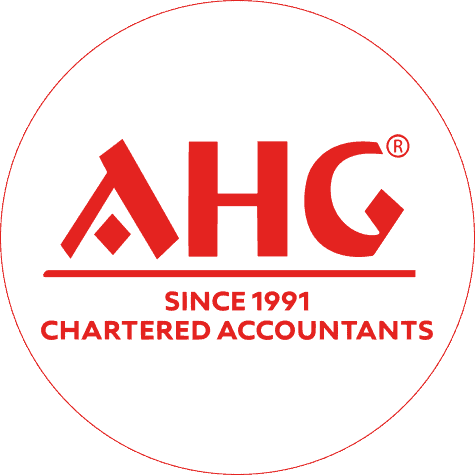The United Arab Emirates (the “State”) has issued Federal Decree-Law No. (47) of 2022 regarding corporate and business tax
It is a form of direct tax imposed on the net income of corporations and other businesses.
The objective of applying corporate tax in the UAE
Introducing the UAE to apply this tax is an achievement of a number of objectives, including:
- Enhancing the UAE’s position as a leading global center for business and investment
- Accelerate the development of the country and its transformation to achieve its strategic goals
- Renewing the state’s commitment towards meeting international standards of tax transparency and preventing harmful tax practices
Since the UAE is a leading center and international hub for business, the corporate tax system in the country is based on best practices worldwide.

Scope of application of corporate tax
Corporate tax exceptions
The scope of corporate tax application includes:
- Companies operating in the real estate and construction sector.
- Business establishment in free zones.
- All businesses and individuals that carry out business activities under a commercial license or permit to carry out their activities in the country.
- banking operations.
Foreign companies and individuals if they carry out regular commercial activity in the UAE.
Persons exempt from registration
- Natural resource extraction activities and businesses, as they will remain subject to the tax laws of the local administration.
- Businesses in the state are exempt from paying corporate taxes on dividends and capital gains received from their qualifying shares.
- Eligible transactions between companies with a tax group and restructuring in meeting all conditions.
- The individual’s salary and any other income, whether earned from government work or the private sector.
- Interest and profits on bank deposits and savings programs for individuals.
Real estate investment for individuals. - Foreign investor income obtained from dividends, capital gains, franchise rights, various investment returns, interest and other types of income
- Dividends from shares, capital gains, and other income generated from their ownership of any shares or other securities as individuals.
How is corporate tax calculated?
The corporate tax rate is calculated as follows:
- 0% for taxable income up to 375,000 dirhams
- 9 percent on the taxable income of more than 375,000 dirhams
- Different tax rates for large multinational companies that meet certain criteria according to the second pillar of the Erosion of the Tax Base and Profit Transfer project of the Economic Cooperation and Development System.
Scope of corporate taxation
The tax is levied on the taxable person’s income earned by the taxable person in a particular tax period.
The tax will be calculated on an annual basis based on the self-assessment of the tax return submitted by the taxable person to the Federal Tax Authority.
Some adjustments may be required to determine the taxable income in the given tax period.
Tax-exempt income for corporations
There are types of income that are exempt from tax, meaning that persons subject to corporate tax will not be taxed on this income.
That is, tax will be collected on corporate taxable income only, and non-taxable income tax will not be collected.
Exempting some types of income from corporate tax is to prevent double taxation on some types of income.
Income exempted from income tax:
- Stock dividends and shares
- Capital gains realized from local and foreign stocks
Some companies, if they meet state requirements, may choose not to account for the income of their foreign permanent establishment for purposes of state corporate tax.
The person based in the free zone
A person based in the free zone if he is a qualified person located in the free zone may be able to benefit from a preferential tax rate of 0% on qualified income only.
There are some conditions that make a person eligible to be established in the free zone, including:
- To maintain a realistic and adequate presence in the country.
Achieve a Qualified Income. - Not choosing to be subject to corporate tax at basic rates.
- Comply with transfer pricing requirements under the Corporation Tax Act.
Additional conditions may be specified by the Minister, all of which must be fulfilled by the person existing in the free zone.
In the event that the person existing in the free zone does not fulfill all these conditions, or if he chooses to be subject to tax at the basic rates, he will be subject to the basic rates of corporate tax starting from the tax period in which he was not subject to these conditions.
Tax groups
In the event that two persons meet certain conditions, they may apply for a tax formation and treat them as one taxable person for corporate tax purposes.
In order to form tax groups, the parent company and its subsidiaries must be resident legal persons, have the same fiscal year, and prepare their financial statements using the same accounting standards.
Conditions for the formation of tax groups
The parent company must meet the following conditions:
- Owning at least 95% of the subsidiary company’s capital.
- Owning at least 95% of the voting rights in the affiliated company.
- The right to profits and net assets of the company by at least 95%
The subsidiary is entitled to retain ownership, rights and entitlement directly or indirectly, and the tax group cannot include an exempt person or a qualified person based in the free zone.
Calculating income subject to tax group tax
The parent company must prepare consolidated financial accounts covering the subsidiaries in the tax group for the relevant tax period, then transactions between the parent company and subsidiaries, and transactions between members of the same tax group are excluded for the purposes of calculating income for taxation for the tax group.
Preparing for corporate tax
There are several steps to get you ready for corporate tax, including:
- View the corporate tax law and supporting information available on the website of the Ministry of Finance and the website of the Federal Tax Authority.
- Review the information available to be able to determine whether or not your business will be subject to the tax, and when the tax will be applied.
- Understand all requirements related to your business under corporate tax law, such as:
- Should your business be registered for corporate tax and when?
- Deadline for filing a corporate tax return
The accounting/tax period for your business. - Choices and requests that can be made for corporate tax purposes
- Financial information and records that have to be retained for corporate tax purposes
AHG is a leading regional auditing and chartered accountancy firm, with presence in the GCC and North Africa. Since 2014, AHG has helped companies operating in the UAE achieve maximum success. We are fully prepared to assist your business in the United Arab Emirates with a team of trained tax experts to prepare your business for corporate tax in the United Arab Emirates.
The AHG-Dubai Group serves a wide range of clients and multinational corporations. This comes in light of the company’s strategy to focus on two main pillars: geographical expansion in frontier markets and driving a positive societal culture. By combining our strengths and expertise in the region, we provide our clients with best-in-class services tailored to their needs to maximize their investment goals in a rapidly changing environment.

